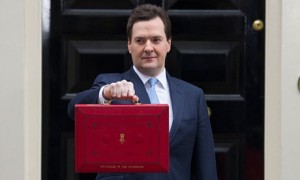
Well, there were some twiddly bits and pieces about annuities and income free joint annuities when a partner dies and £15million for dementia research. £15million is a drop in the ocean compared to the amount that goes on cancer research, but it’s better than nothing.
The Alzheimer’s Society says that there’s a new diagnosis every three minutes which means that within the next twelve months there will be 225,000 more people added to the current figure of 845,000. In addition there are another 45,000 under the age of 65, with early onset dementia. A lot of people, you might think, and from what family doctors are saying it’s more than Social Services are able to support.
Two thirds of people with dementia are cared for in their own homes, by their families. The strain on family caregivers is enormous, often leading to physical and mental ill health which can continue years after bereavement. It’s not unusual for elderly spouses to die before the person they are caring for. People we meet at conferences tell us of lasting, complicated grief, guilt, and anger.
Surely the crying need right now is for funding for more care and support for those diagnosed and their families. It’s still a postcode lottery. Writing in the Guardian, journalist Rose George said, ‘I know from my dad’s awful experience that dementia care is in trouble. Paying GPs to diagnose won’t even begin to fix it.’ She goes on to describe ‘shabby, confusing and often callous system that still passes for dementia “care”.
Last year, in prosperous Surrey, an 81 year old lady with dementia died after being left for nine days without food, water or medication, because her social worker made a mistake in supervising her care. After the inquest relatives said they didn’t blame the social worker, in fact, they felt sorry for her; her career was finished. The problem was the system itself, they said, clearly under pressure with not enough money and not enough staff. Social workers are usually compassionate people who’ve gone into the profession because they want to help; they want to make things better for people. Richard Hawkes, chairman of the Care and Support Alliance which represents 75 charities, also says the care system is “in crisis”. And recently, the president of the Directors of Adult Social Care Services said the system was unsustainable.
So why is the Government pushing family doctors to increase the number of diagnoses, even offering £55 for each new diagnosis? They’ve issued guidelines for screening older patients and offering them tests. But GPs have been saying for some time that without effective treatment or adequate support after diagnosis, patients and relatives felt the tests were pointless. Patients have complained or resented being offered the tests, according to a survey done by Pulse magazine.
Dr Chris Fox of the University of East Anglia’s medical school warned against of the danger of routine screening before elderly patients showed clear symptoms. He said, ‘Current tests are not particularly robust and there is a relatively high risk of misdiagnosis so all of this turmoil could be even more unnecessary. It is unfair to cause fear and concern when treatments are not available, the chances of the condition actually progressing are not clear, and when symptoms may never take hold in the patient’s lifetime.’
And Dr Richard Vautrey, deputy chair of the British Medical Association’s (BMA) GPs committee said the BMA believed the problem with dementia was not about diagnosis, but about providing patients with the condition with enough support.
Surrey GP, Martin Brunet, questions why the obsession with numbers diagnosed. He wrote, ‘Claims that 400,000 people in Britain have undiagnosed dementia are based on very doubtful estimates. You wouldn’t believe it from the headlines, but the prevalence of dementia is actually falling.’
He suggests what could be done and how it could be funded, beginning with diverting monies currently paid to hospital trusts to identify elderly patients admitted with dementia under the Commissioning for Quality and Innovation (CQIN) payment. ‘In reality it is an expensive box-ticking exercise of questionable value,’ he said, ‘A Trust can earn around £1 million per year from the CQIN, and with 160 trusts in England that would boost the pot substantially. If they complain at having their funds diverted to primary care, we can remind them that the money is for patients with dementia and not for their accountants, then tell them how much money will be saved by even one patient with dementia avoiding a hospital admission.’
Most puzzling of all is the rationale quoted by Government spokesmen when asked about the push for more diagnoses. It’s so that each person can receive ‘tailored care and support’, they say.














